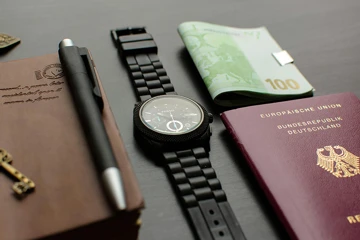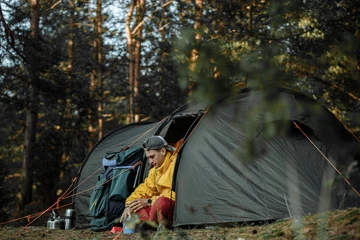The thrill of travel – exploring new cultures, seeing breathtaking sights, creating lifelong memories – is truly one of life’s great joys. But nothing can cast a shadow over a wonderful trip faster than an unexpected illness or health concern. Prioritizing your well-being while on the road isn't about being overly anxious; it's about being thoughtfully prepared so you can fully embrace every moment of your adventure with energy, confidence, and peace of mind. This guide offers some sensible, experience-backed tips to help you do just that.
Key Tips for Wellness and Safety on Your Journeys, Near and Far
A little foresight can go a long way in keeping you feeling your best, wherever your travels may take you.
1. Before You Even Pack: Essential Pre-Trip Health Steps
- Consult Your Doctor & Get Vaccinated: Well before your departure, especially for international or more remote destinations, schedule a visit with your doctor or a travel health clinic. Discuss your itinerary, any pre-existing conditions, and get advice on recommended or required vaccinations and malaria precautions if applicable. Ensure you have an adequate supply of any personal prescription medications (with a copy of your prescription).
- Secure Comprehensive Travel Insurance: This is non-negotiable. Ensure your policy includes robust medical coverage for emergencies, including evacuation if necessary. It’s the safety net you hope you never need, but will be incredibly grateful for if you do.
- Assemble a Basic Health Kit: Pack a small kit with essentials like pain relievers, adhesive bandages, antiseptic wipes, motion sickness medication, any personal medications, allergy relief, and a good quality hand sanitizer. Consider adding things like rehydration salts or anti-diarrheal medication based on your destination.
- Research Your Destination: Familiarize yourself with any local health risks, the safety of tap water, food hygiene standards, and the location of reputable medical facilities.
2. During Your Journey (Flights, Trains, and Automobiles)
- Stay Hydrated, Especially in the Air: Drink plenty of water, particularly on long flights, as cabin air is very dry. Avoid excessive alcohol or caffeine, which can dehydrate you further.
- Move Around: On long journeys, get up and stretch regularly to promote circulation and reduce the risk of deep vein thrombosis (DVT).
- Practice Good Hand Hygiene: Wash your hands frequently with soap and water, especially before eating. Use an alcohol-based hand sanitizer when soap and water aren't available.
3. At Your Destination: Day-to-Day Wellness
- Food and Water Safety is Paramount:
- In many parts of the world, the adage "boil it, cook it, peel it, or forget it" is wise.
- If you're unsure about tap water, stick to bottled, boiled, or purified water. Be wary of ice in drinks.
- Be cautious with street food, especially initially. Choose vendors that are busy (high turnover) and where food is cooked fresh in front of you.
- Listen to Your Body: Don't try to cram too much into every day. Allow for rest and downtime, especially when adjusting to new time zones (jet lag).
- Protect Yourself from the Sun: Use a broad-spectrum sunscreen with adequate SPF, wear a hat, and sunglasses, even on cloudy days.
- Guard Against Insect Bites: In areas with mosquito-borne illnesses (like malaria, dengue, Zika), use an effective insect repellent, wear long sleeves and trousers (especially at dawn and dusk), and consider sleeping under a mosquito net if accommodations are not screened.
- Get Quality Sleep: Adequate rest is crucial for your immune system and overall energy levels. Try to stick to a somewhat regular sleep schedule if possible.
- Stay Moderately Active: Walking is a great way to explore and stay active. If appropriate for your destination and fitness, consider other activities you enjoy.
- Mind Your Mental Well-being: Travel can be stressful at times. Practice mindfulness, allow for quiet moments, stay connected with loved ones (but don’t be glued to your phone), and be kind to yourself if things don’t go exactly to plan.
4. After You Return Home
- Monitor Your Health: If you feel unwell in the days or weeks after your trip, especially with a fever or persistent stomach issues, see your doctor and be sure to mention your recent travel history.
A Note on Professional Advice Please remember, these tips are for general guidance and awareness. They are not a substitute for professional medical advice. Always consult with your doctor or a qualified travel health professional for personalized recommendations tailored to your individual health needs and your specific destination(s).
Staying healthy while traveling is largely about making informed, sensible choices. By taking these simple precautions, you can significantly reduce your risks and focus on what truly matters: immersing yourself in the incredible experiences your journey has to offer.
Here's to happy, and healthy, travels!


